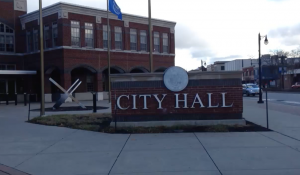Out of a strong third place in the Iowa caucuses and a solid second in the New Hampshire primary, Republican presidential candidate

Ron Paul only hopes his own party and some skeptical voters would trust him to beat President Barack Obama in November.
Despite getting three times as many votes in the Granite State than when he ran for president in 2008, Paul has not received the same level of support in South Carolina and Florida, where he stands in fourth place among likely primary voters, according to FiveThirtyEight.
He also has had to spend precious campaign time defending himself from unelectability claims by rivals, political analysts and voters, even as polls show he’s the only other candidate besides Romney to be within the margin of error in a head-to-head match-up with president Obama.
“Ron Paul’s message of individual liberties and personal responsibilities resonate with open-minded non-partisan people,” said Illinois supporter Dave Mashek, who has been a Ron Paul fan since 2005. “This allows him to draw in huge numbers from the independents, even beyond Libertarians.”
Mashek predicted Paul’s second place in New Hampshire and believes his numbers will go up in South Carolina, which holds a primary on Jan. 21. He said disenfranchised Democrats and young supporters are often underestimated in the polls.
“Youth get excluded since some polls only call landlines,” Mashek, who is currently unemployeda and lives in Naperville, Ill., said. “Also keep this in mind: Ron Paul supporters rarely waver in their support; once he gets them he doesn’t lose them.”
But there’s a drawback. In national polls, Paul has struggled to appeal beyond his core of libertarian supporters.
“He will never branch out beyond his base of 10-15 percent of the voters, who are almost entirely young white males who think libertarianism is wonderful because it makes selfishness appear morally justified,” said Evan McKenzie, an associate professor of political science at University of Illinois at Chicago.
McKenzie wouldn’t be surprised if Paul came in second in the Illinois primary March 20, “but he can’t move beyond his base because his views are so bizarre.”
After Paul canceled an event at a New Hampshire university last Friday morning, the candidate left some wondering if he’s serious about the presidency or just trying to push the GOP debate forward. But others swear he’s still firm in the race and will lock down the fight with Romney, which has performed better so far than any other non-incumbent GOP presidential candidate.
Tim Hagle, professor of political science at the University of Iowa, said while some have suggested Paul’s libertarian message will resonate better in New Hampshire than it did in Iowa, his views are an issue when put under more heavily scrutiny.
“In Iowa, his newsletters became an issue as did his foreign policy positions,” Hagle said. “That caused him to drop back in the polls, and ultimately in his showing in the Iowa caucuses.
Hagle said Paul’s promise to cut $1 trillion from the federal budget if he were elected president would be nearly impractical, and he isn’t talking enough about jobs, which is the no. 1 concern among voters right now.
Paul is one of the six Republicans who will appear on Illinois’ primary ballot– where some predict he’ll hold his own.
In the Illinois Republican primary only Republicans can vote, explains Noah Kaplan, an American politics expert at UIC. “This might help Rep. Paul a bit since independents tend to be a bit more ideologically moderate than registered Republicans.”
The last day to register for the Illinois primary is Feb. 21. A grace period registration extends until March 13. On election day, polls are open 6 a.m. to 7 p.m.












Be First to Comment